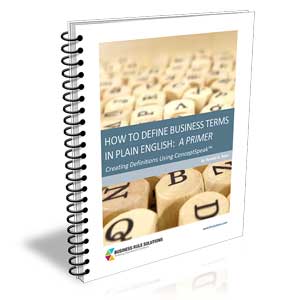What Is the Future for Processes?
To understand the future of processes, you must dig a little deeper than many people do.
Process thinking goes back well over a century, to the origin of modern iron and automobile production. The raw materials and finished goods of such manufacturing and production processes are literally spatial — 3-dimensional. What can you do to significantly improve productivity in a 3-dimensional world? The answer these days is simple: You build robots. Robotization has literally changed the world during the past 30–40 years.
Rather than manufacturing and production processes, however, the world is now increasingly focused on white-collar and digital processes. What 3-dimensional presence do the raw materials and finished goods of these processes have?
Well, exactly none. The raw materials and finished goods of these processes aren't physical and simply have no spatial presence whatsoever (except maybe for paper artifacts). Robots (at least physical ones) aren't an option. That fact of life makes a huge difference in how you have to think about automation for such processes.
Instead, the raw materials and finished goods of such processes are all about your operational business knowledge — your intellectual capital — and your capacity to express and apply it. That capability, in turn, depends directly on your business terminology and business language. For white-collar processes you have no choice — the world is semantic. So you must deal with the subject matter semantically.
That takes us in a very different direction than most professionals currently foresee. For one thing it takes us toward natural language and away from diagrams. That's a huge shift in mindset. Imagine having a business conversation with your smart phone about gaps and ambiguities in business policies and in the meanings of the vocabulary you use to talk about subject matter knowledge. Don't think that's possible? Have you watched your kids talking to their smart phones lately?
Sooner or later businesses will realize that operational business knowledge differentiates their product/services and enables their ever-more-automated processes to function. Capturing, managing, and re-using that intellectual capital puts a premium on structured business vocabulary (concept models[1]) and on business rules expressed in structured natural language.[2] Those business rules are the only way you have to ensure quality from white-collar and digital processes.
What about Case Management?
Many 'processes' people are looking to implement these days are clearly best viewed as case-oriented — e.g., patient care, mortgage applications, etc. Individual cases must be orchestrated through various states, often with undesirable or wayward transitions. There is significant variation in the paths that various cases take. Things just don't always move along as predictably as on a production line.
For such problems you'll want a more case-oriented style of modeling. (For business practitioners that technique may or may not prove to be CMMN.[3]) You might not use traditional process modeling at all. Whatever your approach you'll definitely want to be very clear about what milestones are relevant, and which business rules apply for each. That puts a premium on business rules.
What about Cognitive Computing?
People are also starting to ask why current processes are so dumb. For example, why can't they:
- learn from experience?
- be more goal-driven?
- dynamically balance between conflicting goals?
- self-adapt?
Some people suggest use of cognitive computing to help make processes smarter. I doubt anybody today really knows how far this idea can be taken. I can, however, say two things with certainty:
- If you don't know what your business rules are (i.e., what rules guided previous executions), can you really expect a machine to figure them out? A machine can undoubtedly identify patterns, but that's a far cry from demonstrating compliance, guaranteeing consistent results, or customizing appropriately case-by-case.
- Suppose self-adapting processes do become reality. The question I have is what will keep such processes from going out of bounds? How do you avoid them doing things that are undesirable, self-defeating, or even illegal? These are critical questions that will always bring you right back to business rules.
For further information, please visit BRSolutions.com
References
[1] Refer to "What Is a Concept Model?" by Ronald G. Ross, Business Rules Journal, Vol. 15, No. 10 (Oct. 2014), URL: http://www.BRCommunity.com/a2014/b779.html ![]()
[2] E.g., in RuleSpeak®. Refer to http://www.rulespeak.com/en/ ![]()
[3] Case Management Model and Notation ![]()
# # #
About our Contributor:
Online Interactive Training Series
In response to a great many requests, Business Rule Solutions now offers at-a-distance learning options. No travel, no backlogs, no hassles. Same great instructors, but with schedules, content and pricing designed to meet the special needs of busy professionals.










How to Define Business Terms in Plain English: A Primer
How to Use DecisionSpeak™ and Question Charts (Q-Charts™)
Decision Tables - A Primer: How to Use TableSpeak™
Tabulation of Lists in RuleSpeak®: A Primer - Using "The Following" Clause
Business Agility Manifesto
Business Rules Manifesto
Business Motivation Model
Decision Vocabulary
[Download]
[Download]
Semantics of Business Vocabulary and Business Rules